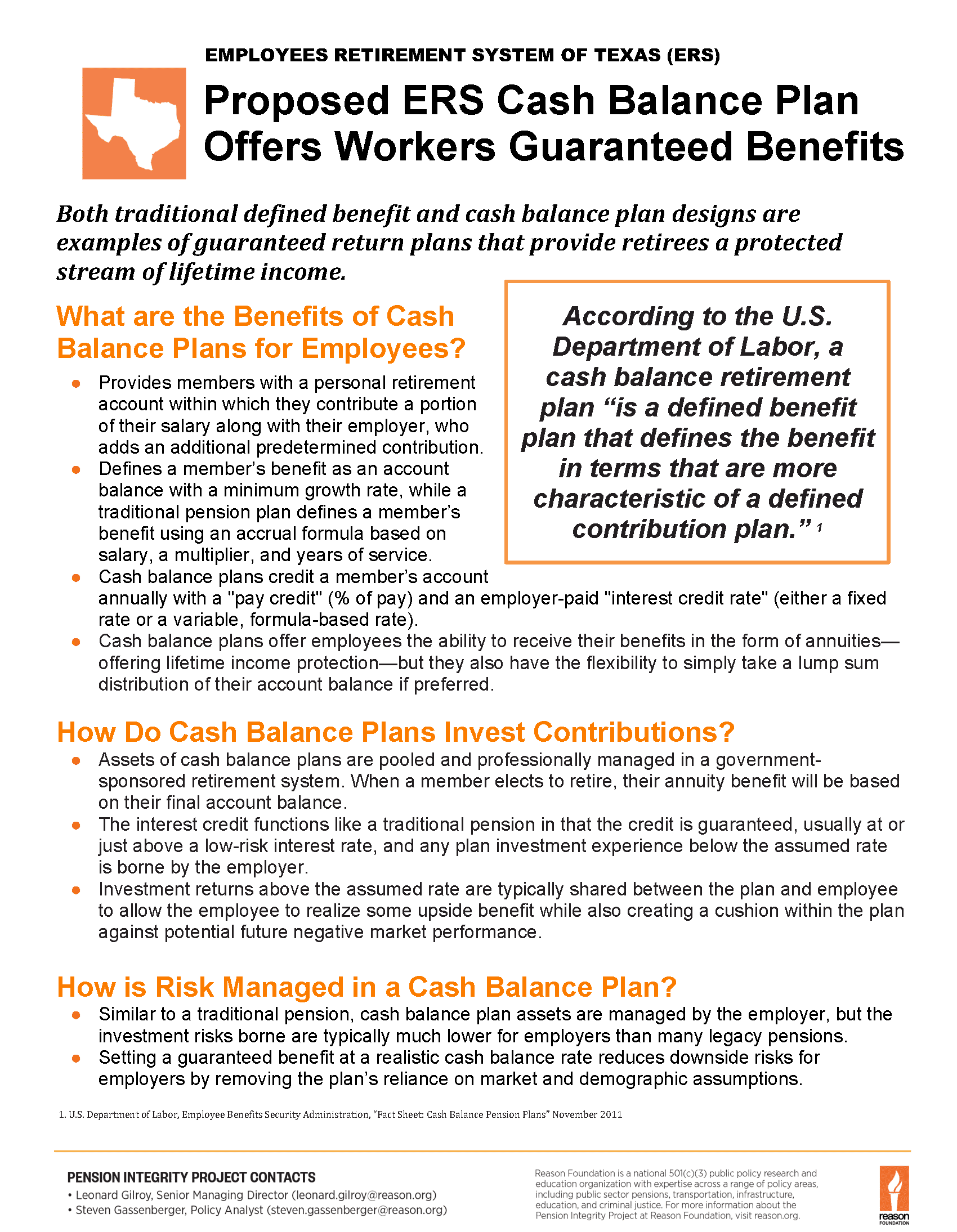Both traditional defined benefit and cash balance plan designs are examples of guaranteed return plans that provide retirees a protected stream of lifetime income. According to the U.S. Department of Labor, a cash balance retirement plan, “is a defined benefit plan that defines the benefits in terms that are more characteristic of a defined contribution plan.”
What are the Benefits of Cash Balance Plans for Employees?
- Provides members with a personal retirement account within which they contribute a portion of their salary along with their employer, who adds an additional predetermined contribution.
- Defines a member’s benefit as an account balance with a minimum growth rate, while a traditional pension plan defines a member’s benefit using an accrual formula based on salary, a multiplier, and years of service.
- Cash balance plans credit a member’s account annually with a “pay credit” (% of pay) and an employer-paid “interest credit rate” (either a fixed rate or a variable, formula-based rate).
- Cash balance plans offer employees the ability to receive their benefits in the form of annuities—offering lifetime income protection—but they also have the flexibility to simply take a lump sum distribution of their account balance if preferred.
How Do Cash Balance Plans Invest Contributions?
- Assets of cash balance plans are pooled and professionally managed in a government-sponsored retirement system.
- When a member elects to retire, their annuity benefit will be based on their final account balance.
- The interest credit functions like a traditional pension in that the credit is guaranteed, usually at or just above a low-risk interest rate, and any plan investment experience below the assumed rate is borne by the employer.
- Investment returns above the assumed rate are typically shared between the plan and employee to allow the employee to realize some upside benefit while also creating a cushion within the plan against potential future negative market performance.
How is Risk Managed in a Cash Balance Plan?
- Similar to a traditional pension, cash balance plan assets are managed by the employer, but the investment risks borne are typically much lower for employers than many legacy pensions.
- Setting a guaranteed benefit at a realistic cash balance rate reduces downside risks for employers by removing the plan’s reliance on market and demographic assumptions.
Proposed ERS Cash Balance Plan Offers Workers Guaranteed Benefits



